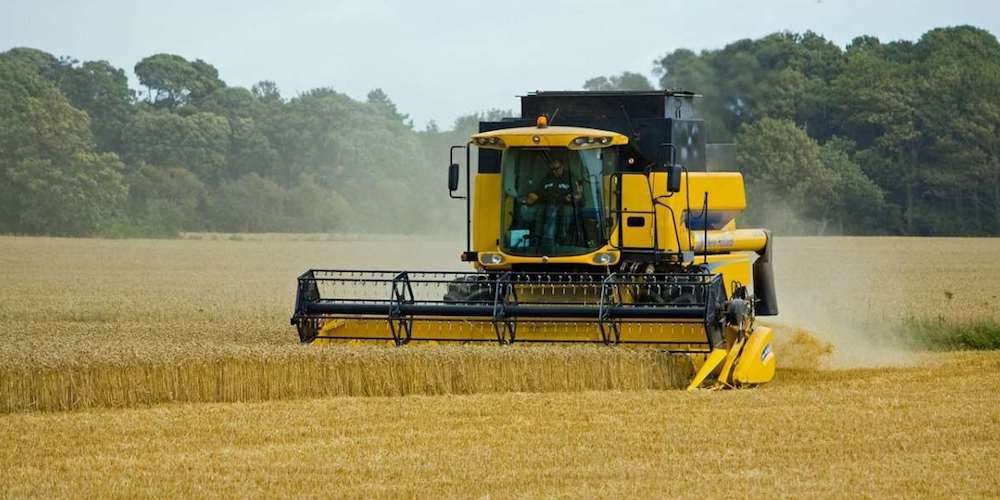Technology and Funds for Indian Agriculture

The central government led by Prime Minister Narendra Modi is promoting use of new technology in Agricultural Research. So says Union Agriculture Minister Narendra Singh Tomar.
The Research by Indian Council of Agricultural Research (ICAR) is focusing on genetic enhancement of crops/livestock/fish for high yield, quality and climate resilience, conservation of resources and development of intelligent IT enabled platforms for technology transfer among farmers and stakeholders.
The ICAR during 2021-22 developed and released 309 varieties/ hybrids of field crops including 35 varieties with special traits and 94 varieties of Horticultural crops for cultivation.
The central government, during 2020-21 and 2021-22, has allocated funds to the tune of Rs 1756.3 and Rs. 2422.7 crores to the States for introducing new technologies including drones, artificial intelligence, block chain, remote sensing and GIS etc in agriculture. Further, the Government also allocated Rs. 7302.50 and Rs. 7908.18 crores in 2020-21 and 2021-22 respectively to ICAR for undertaking Research and Development in Agriculture for developing new technologies, their demonstration at farmer’s field and capacity building of farmers for adoption of new technology.
The central government has also accorded due focus on ensuring improved service delivery and facilitating market access to farmers. The Government also accords adequate emphasis towards reducing transaction costs, promotion of FPOs to improve their bargaining power. Development of infrastructure has also been given due attention to ensure better connectivity of farmers to the national and international market.
High-yielding, cost-saving, disease/pest resistant and climate-resilient varieties and technologies in crops, horticulture, animal and fisheries science developed besides precision farm equipment for production and post production agriculture developed by ICAR have played important role in increasing production and productivity, reducing cost of production and enhancing income of the farmers. Adoption of Farming Systems Models developed by ICAR have also enabled farmers to enhance their income and strengthen their economic condition. Besides, State specific strategies for increasing farmers income, provided to States by ICAR, are also helping farmers to increase their incomes.
National Agricultural Research System comprising of a total of 102 Research Institutions, 63 State Agricultural Universities, 3 Central Agricultural Universities and 4 Universities having agriculture faculty besides 82 All India Coordinated Research Projects/Network Projects, each having a large number of coordinating centres across the nation, is amongst the largest and strongest research systems of the World. As an adequate number of research centres are existing in the country, no new research centres were established during the last three years by the Government.
Due emphasis is given by the ICAR to shift research from a commodity-based to farming systems based approach. ICAR has created multidisciplinary research complexes in different regions of the country to address this. A dedicated Institute “ICAR-Indian Institute of Farming Systems Research (IIFSR), Modipuram” is working on characterizing, creating, studying and refining the farming system models in all the agro-climatic regions. Another institute, ICAR – Mahatma Gandhi Integrated Farming Research Institute has been established to facilitate and promote coordination and dissemination of the technology for integrated farming through network/consortia approach. Sixty-three Region Specific Integrated Farming System models developed by ICAR are demonstrated through the network of research Institutes and Krishi Vigyan Kendras all over the country.
It may also be noted simultaneously that the Agriculture Infrastructure Fund (AIF) scheme has been launched with an objective to mobilize a medium – long term debt financing facility for investment in viable projects for post-harvest management Infrastructure and community farming assets through incentives and financial support in order to improve agriculture infrastructure in the country.
So far, AIF portal has received 19000+ applications seeking subsidized loans worth Rs 13,400 crore under the Agriculture Infrastructure Fund (AIF) scheme. Out of this, a total of 10394 projects have been sanctioned under the scheme worth a loan of Rs.7677 crore which includes in principle sanction by NABARD.
Further, to make the scheme more attractive DAC&FW have increased project limit of one project per beneficiary to upto 25 projects per beneficiary and also included APMCs, Federations of FPOs, SHGs and Cooperative and State agencies as eligible beneficiaries under the scheme.
For the awareness creation, Union Agriculture Minister Tomar had conducted two review meetings with the Chief Ministers of all the states (August 2020 and September 2021) and the department is conducting various awareness programmes, workshops and review meetings with State Nodal Officers, Bank Officials, Applicants, Agri-entrepreneur, FPOs etc. on a regular basis.
Besides, on the basis of the share in agriculture production, the Rs.1 lakh crore debt financing facility has been tentatively allocated to each of the states and UTs. However, the state wise allocated target issued in the guidelines is indicative in nature. The amount will be distributed among states on first cum first serve basis with the overall financial limit of ₹1 lakh crore under the fund.



